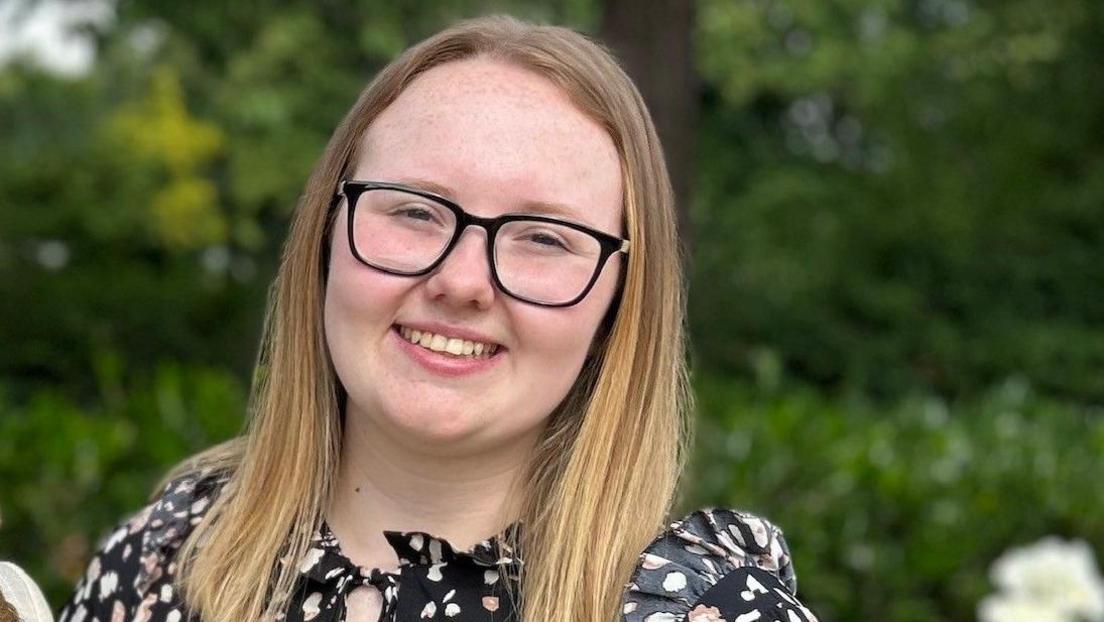'I left school struggling to read and write'
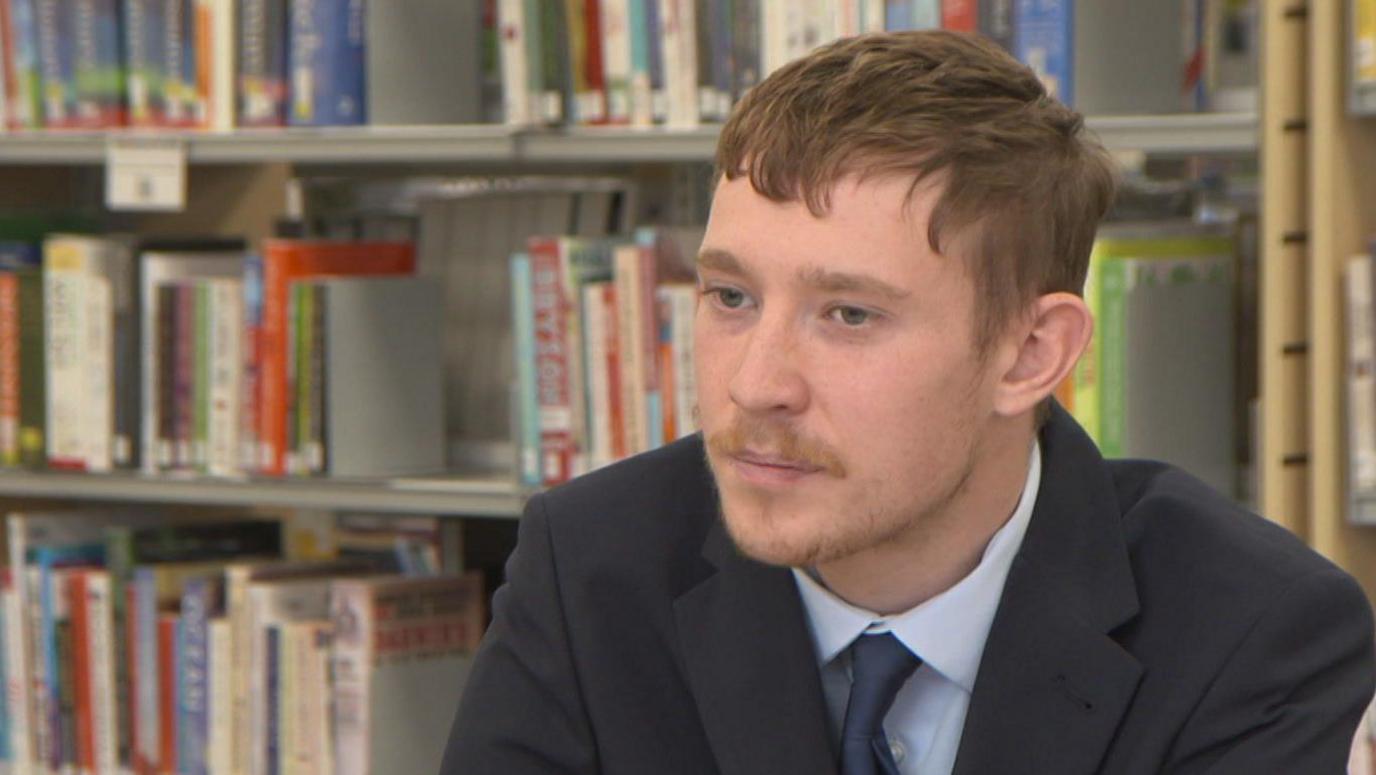
Luke Hall said he did not receive his diagnoses until he began college
- Published
A 22-year-old who was diagnosed with dyslexia and dyscalculia later on in life says school was a daily battle.
Luke Hall, from Cramlington, Northumberland, grew up finding it hard to recognise both letters and numbers, and remembers them "jumping around" on the page.
"At school they thought I was misbehaving and being proper naughty by getting frustrated over nothing, but they never knew what I had," Mr Hall said.
He left school struggling to read and write but is one of many in north-east England, according the National Literacy Trust, which estimates more than 17% of adults in the region have very low literacy skills.
A 2021 study by the North East Chamber of Commerce put the figure at about 23%.
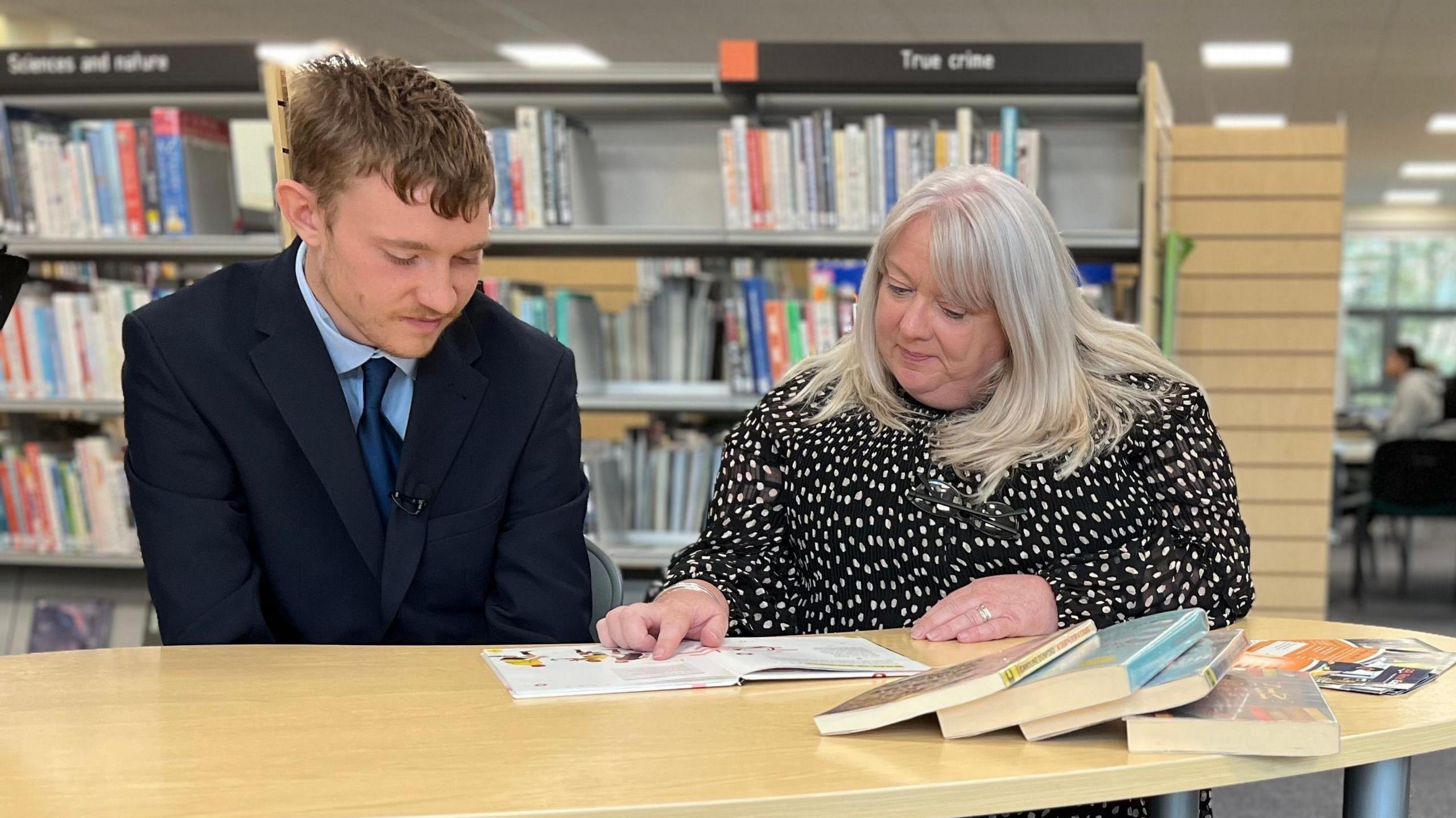
Luke Hall, pictured with Read Easy volunteer coach Melanie Harper, has dreams of becoming a sports coach
Mr Hall did get some help at school, but also found his frustration getting him into trouble.
It was only when he enrolled at Newcastle College that he received a diagnosis for dyslexia and dyscalculia, a condition which makes it hard to process numbers.
As a rugby player and fan, he wanted to carve out a career as a sports coach but realised the limitations of his literacy would be a barrier.
He found help with charity Read Easy, which places people like him with volunteer coaches who work one-on-one on literacy skills.
"Making progress makes me feel so proud of myself now compared to how I was in school," he said.
Karl Cain, co-ordinator at the Newcastle and North Tyneside group, said there were many reasons why people saught out help.
"The reasons are astonishingly varied," he said.
"It is often to do with schooling 20 or 30 years ago where they slipped through the net.
"One reader that I had, who's an elderly chap, had worked all his life, had a family, and had been successful without really being able to read."
Spaces to read
The National Literacy Trust said the lack of access to books in schools across the North East needed addressing.
It said 18% of primary schools in the region currently had no dedicated library, and the charity's research found they were more likely to be in poorer communities.
Oakdene Primary in Billingham is one such school, as more than 40% of pupils qualify for free school meals.
But the trust has created dedicated spaces there for children to read and borrow books to take home.
Vice principal Sarah Osborne said: "We've now got five mini-libraries dotted throughout the school.
"They are in corridors, there's one in the corner of the dining hall, and up on landings next to classrooms.
"They are a place to relax, where they can choose any book they would like to read.
"It's expanding their vocabulary and their experiences which then also really help with their attainment."
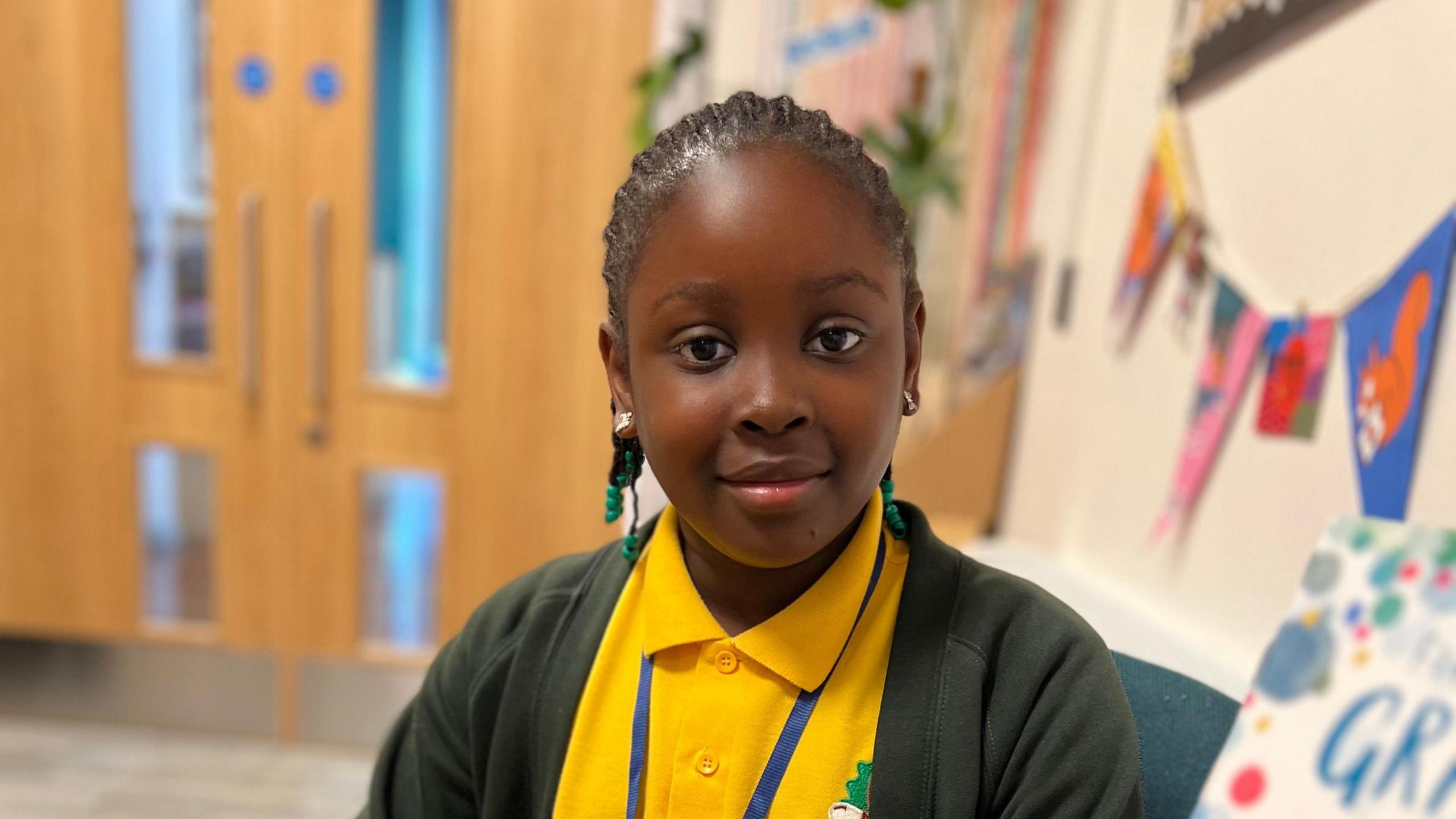
Melanie said the new libraries were "small and cosy"
Eight-year-old pupil, Melanie, said: "I like that it's small and cosy and they've got a different range of books."
And Max, also eight, said: "You can just pick loads of choices of books then you can just take a seat and read it."
The government has recently pledged to ensure every primary school in England and Wales has a library by the end of the current parliament.
The Department for Education (DfE) said it was looking to break the link between social background and success at school, with a spokesperson saying £27.7m would be invested to support the teaching of reading and writing.
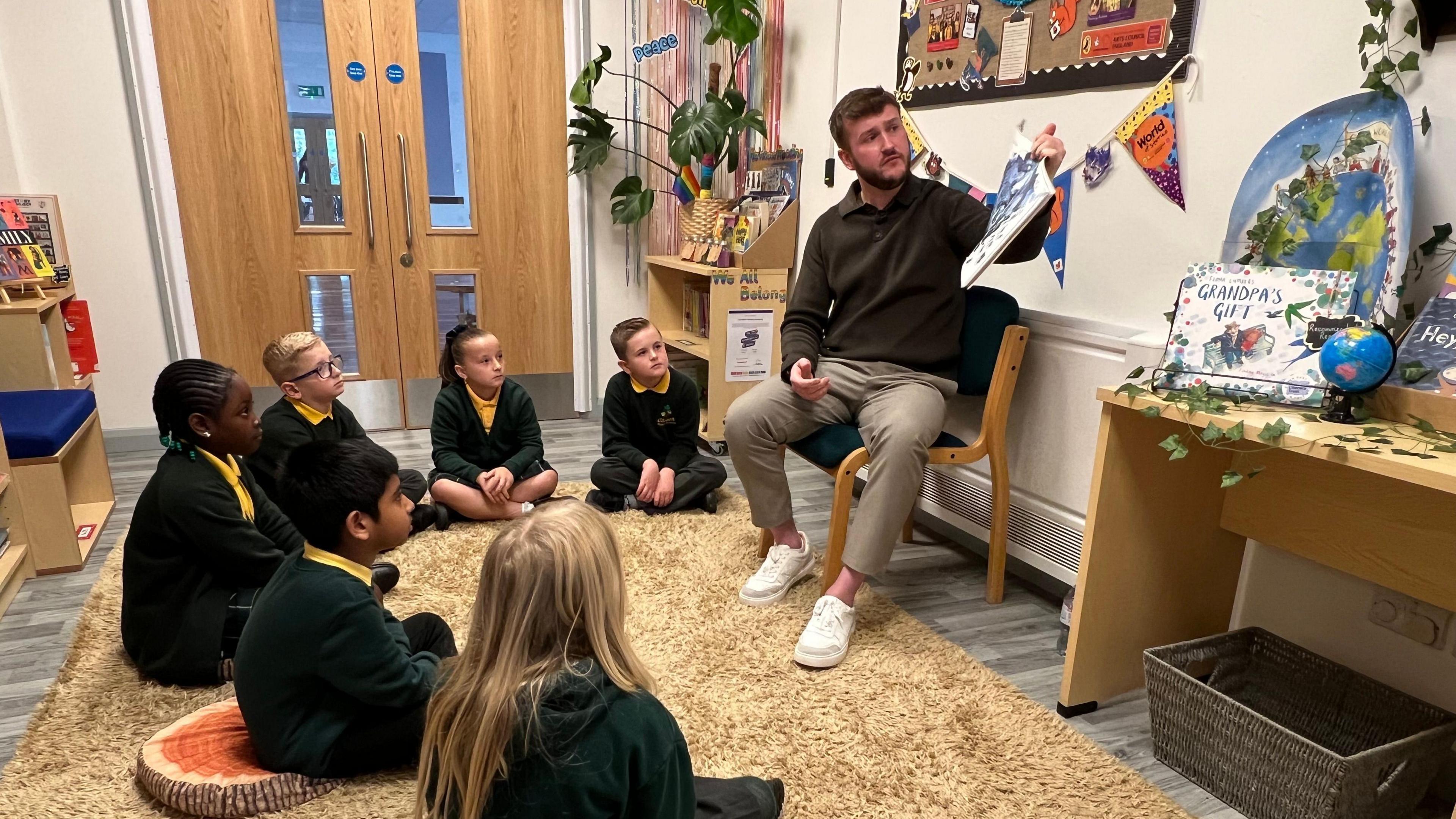
Children at Oakdene Primary have been enjoying their new mini-libraries
Ministers are also reviewing the curriculum to ensure children leaving school are prepared for work and life.
Jason Vit, assistant director at the National Literacy Trust, said: "We want a really firm commitment that reading for enjoyment will have a major place.
"That's for a very simple and compelling reason.
"Children that report they love reading do better academically across all subjects. And actually the evidence suggests that's more important than socioeconomic status for long-term outcomes in life."
Follow BBC North East on X, external, Facebook, external, Nextdoor and Instagram, external.
Get in touch
Do you have a story suggestion for BBC Tyne?
Related topics
Related stories
- Published4 April 2024
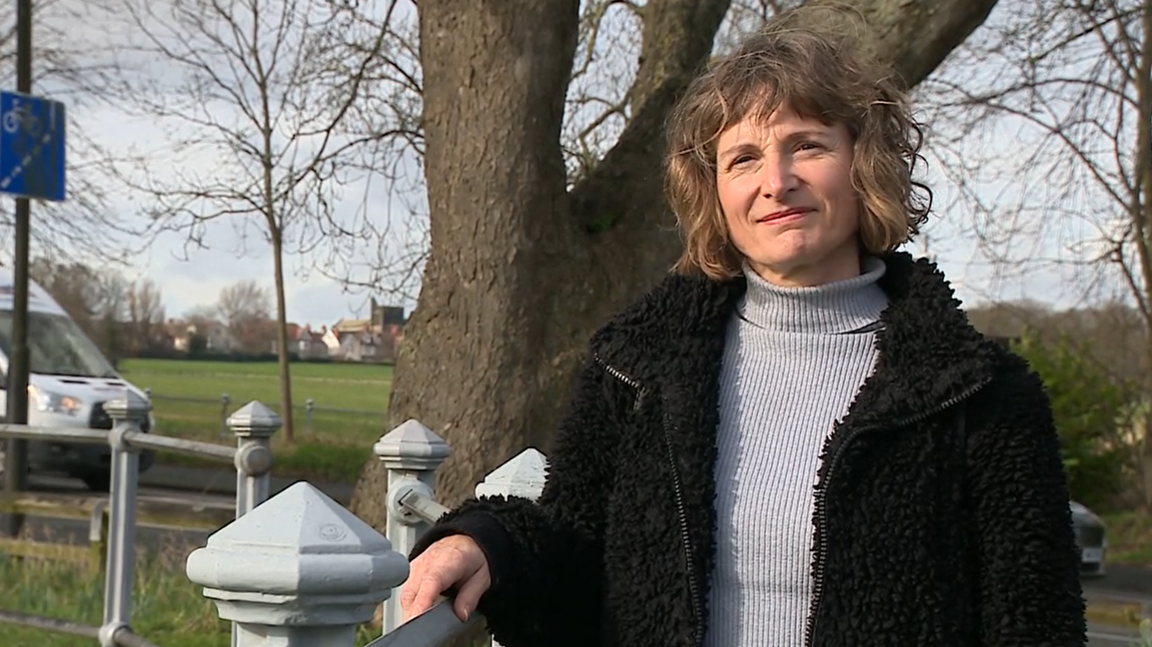
- Published9 March
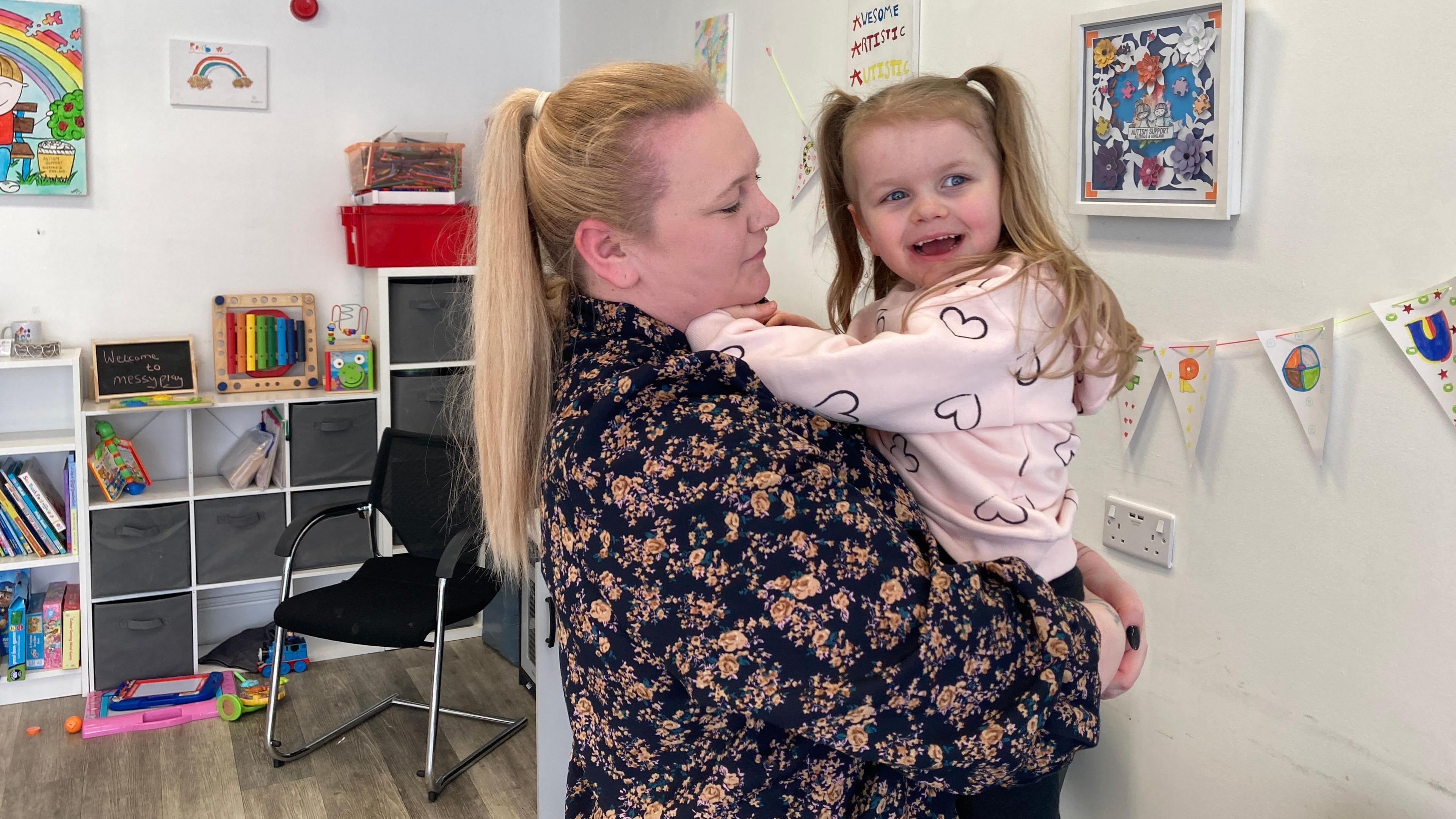
- Published25 May

- Published18 August
